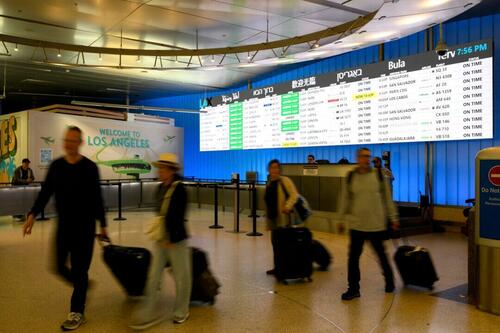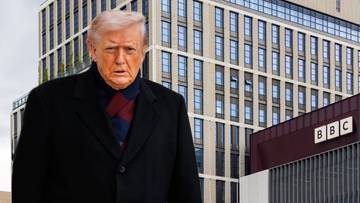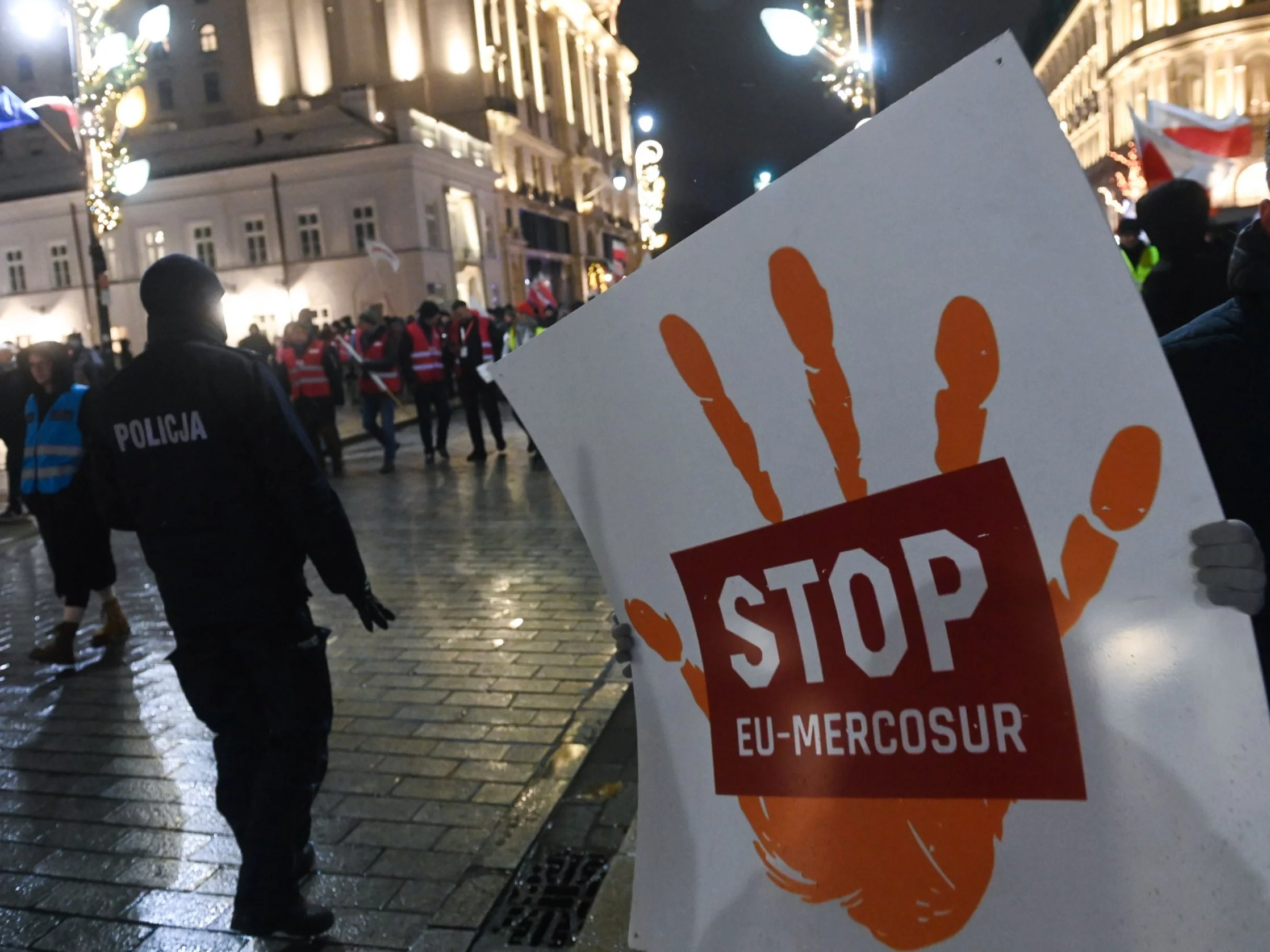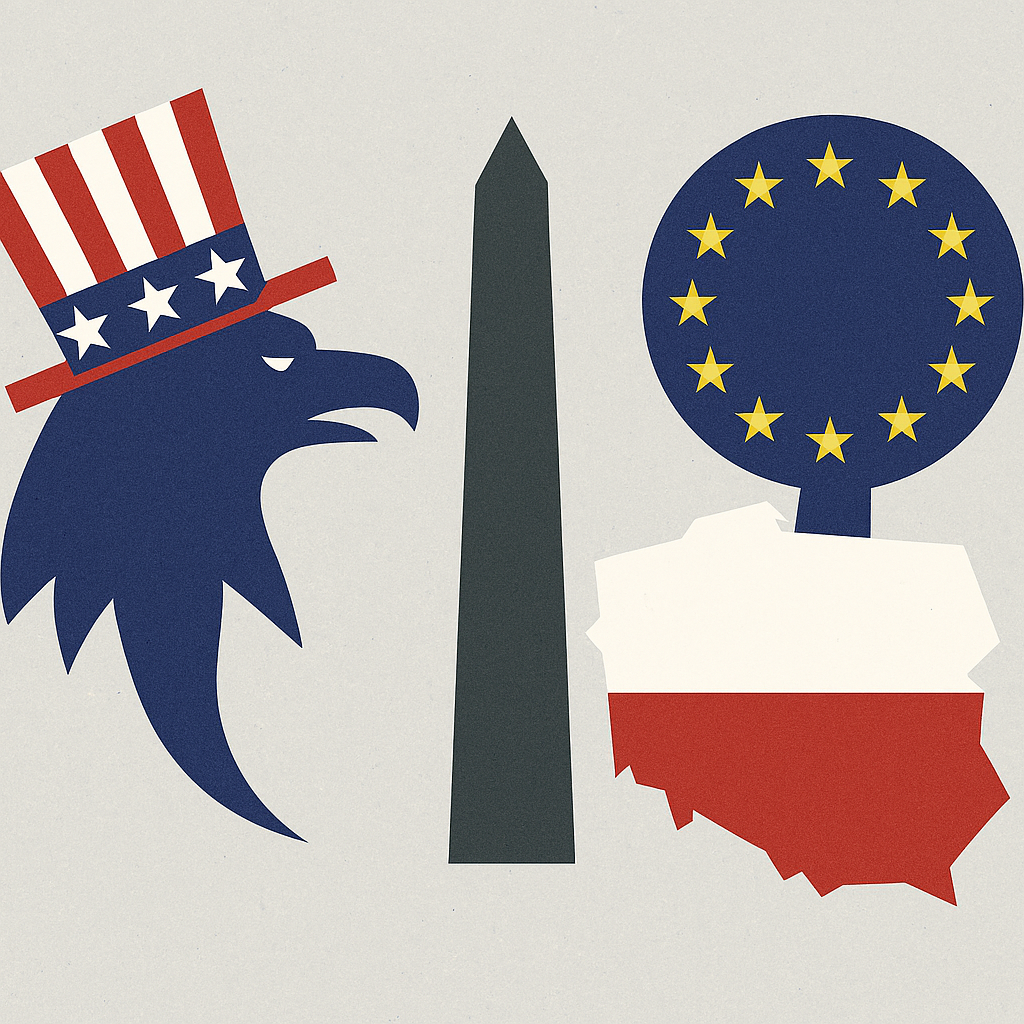
Trump Travel Ban, Restrictions Go Into Effect On 19 Nations
Authored by Joseph Lord via The Epoch Times (emphasis ours),
A travel ban signed by President Donald Trump has gone into effect, barring nationals from 12 countries from entering the United States and restricting entry by nationals from seven others.
 Travelers cart their luggage through the international arrivals area at the Los Angeles International Airport in Los Angeles on June 8, 2025. William Liang/AP Photo
Travelers cart their luggage through the international arrivals area at the Los Angeles International Airport in Los Angeles on June 8, 2025. William Liang/AP PhotoThe ban, instituted through a presidential proclamation rather than an executive order, went into effect at 12:01 a.m. ET on June 9. As a proclamation, it isn’t legally binding but signals a shift in federal policy.
A total of 12 countries face complete bans under the proclamation, including Afghanistan, Chad, Equatorial Guinea, Eritrea, Haiti, Iran, Libya, Burma (also known as Myanmar), the Republic of the Congo, Somalia, Sudan, and Yemen.
People from these nations are barred from entering the United States for immigration or other reasons.
The seven countries that the president partially restricted travel from are Burundi, Cuba, Laos, Sierra Leone, Togo, Turkmenistan, and Venezuela.
Trump suspended the entry of individuals from those seven countries “as immigrants, and as nonimmigrants,” on B-1, B-2, B-1/B-2, F, M, and J visas, according to the directive.
Those who are already in the country from these nations with a valid visa will be permitted to remain.
Trump tied the proclamation to national security and public safety. In a video on social media, Trump linked the new ban to the June 1 terror attack in Boulder, Colorado, saying it underscored the dangers posed by some visitors who overstay visas.
The suspect in that attack, Mohammed Sabry Soliman, was an Egyptian national who overstayed his visa, according to the Department of Homeland Security.
“It is the policy of the United States to protect its citizens from terrorist attacks and other national security or public-safety threats,” Trump’s order reads. “Screening and vetting protocols and procedures associated with visa adjudications and other immigration processes play a critical role in implementing that policy.”
He tied the Afghanistan ban to the Taliban’s current control of the nation, the Iran ban to the Islamic state’s status as a “state sponsor of terrorism” and noncooperation with the United States, and Somalia’s to the nation’s internal terrorism issues.
The proclamation also mentions the significant influx of illegal immigrants from Haiti.
“This influx harms American communities by creating acute risks of increased overstay rates, establishment of criminal networks, and other national security threats,” the proclamation reads.
Others were tied to noncooperation by foreign governments, including not accepting deported foreign nationals.
For example, according to the White House, Chad had visa overstay rates of 37 percent, 49 percent, and 55 percent, depending on the type of visa, in 2022 and 2023.
“The high visa overstay rate for 2022 and 2023 is unacceptable and indicates a blatant disregard for United States immigration laws,” the directive said.
The travel ban results from a Jan. 20 executive order that Trump issued requiring the departments of State and Homeland Security and the Office of the Director of National Intelligence to compile a report on “hostile attitudes” toward the United States and whether entry from certain countries represented a national security risk.
The order met with criticism from some international and immigrant groups, including the International Refugee Assistance Project.
In a statement, the group said that the ban “weaponizes and distorts immigration laws to target people that the president dislikes and disagrees with” and would create “chaos.”
The African Union Commission also expressed concerns about the “potential negative impact” of the move.
“The African Union Commission respectfully calls upon the U.S. administration to consider adopting a more consultative approach and to engage in constructive dialogue with the countries concerned,” the commission said in a statement.
Jack Phillips contributed to this report.
Tyler Durden
Tue, 06/10/2025 – 08:05

 6 miesięcy temu
6 miesięcy temu









